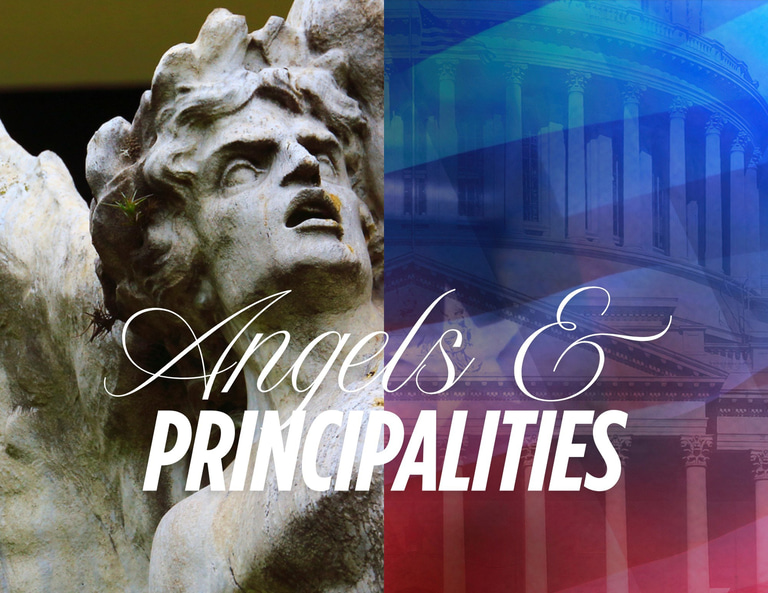Frank DuNN: Conversations at the junction of faith and politics
Leo
What we know so far about Pope Leo XIV is a promising profile of a Christian dedicated to gospel values. The world could use a roaring lion on the side of justice, peace, and love.
Frank Dunn
5/13/20256 min read

The news about Pope Leo XIV is stirring the pot of Christendom. And apparently the news is stirring the pot of MAGA. When a right-winger like Laura Loomer seethes that the Pope is a “woke Marxist,” he must be good news for the Church and the world. Would that the election of a “woke Marxist” would nip White Christian Nationalism in the bud.
It won’t.
I’m neither a Roman Catholic nor an aficionado of papal commentary. But I know a Christian when I see one. I’ve been wrong, disillusioned, disappointed, angry, and disgusted with past papacies. I’ve also been moved and inspired by some.
I was in high school when John XXIII was elected. In the small Carolina town I’d grown up in, there was only a handful of Catholic families. Not until I worked at a resort hotel before my senior year did I get to know a devout Roman Catholic. From her I learned some critically important lessons.
Her name was Anastacia Guillou. She was from Savannah. She was married to the sous-chef of the hotel, and, like lots of other seasonal staff and spouses, she and her husband lived in the “bullpen,” the barracks that housed most of the bellhops, waiters, busboys, maintenance personnel, and kitchen staff.
Not many days after I began my summer job as a busboy, I met her. We became friends. I’d visit her during my morning and afternoon breaks. Little churchy enthusiast that I was, I found her devotional life charming. She taught me the mysteries of the Rosary, some of the terms that a devout Roman Catholic would use frequently, such as confession, novena, and sacrament.
Not only was I a church-oriented youngster, but I was also a budding young Republican. She was a Democrat. She loved John F. Kennedy. She refrained from shaming me for admiring Barry Goldwater.
She was less certain about the new pope, John XXIII. But most of all, she imprinted on me her oft-repeated challenge: “Darlin’,” she’d say, “if you’re going to be a Methodist minister, you can’t afford to be narrow-minded.” What she said stuck, even after I’d abandoned the notion of being a Methodist minister, and during the years preceding and following my ordination as an Episcopal priest.
Because she opened my mind, I paid attention to what was happening in Vatican II. The antiquarian part of me was a bit disappointed when the mass was no longer in Latin (I’d attended mass with her a time or two that summer, in days before the liturgical revisions were made.) Pope John XXIII became a model for me. I loved his simplicity, his courage, his vision. One of the most moving things that came out of that era was an anecdote a Greek Orthodox friend in seminary told me. The Patriarch of Constantinople one year broke the silence that followed the mutual excommunication of Eastern and Western Churches in 1054. He sent a Christmas card to the Pope, quoting the fourth gospel. It read, “There was a man sent from God whose name was John." I don’t know whether the story is true, but it is powerful enough that I choke up when I repeat it.
The world rejoiced when John Paul II was elected, a symbol of the liberation movement that changed the course of his native Poland. He turned out to steer the Church in a very theologically reactionary direction.
Many of us agonized when Cardinal Ratzinger, champion of causes that occasioned all manner of pain to gay and lesbian Catholics and non-Catholics as well, became Pope Benedict XVI.
Pope Francis has been a breath of fresh air. He has left a powerful legacy of gospel witness, particularly in his clarion call for the world to address climate change.
Now, Leo XIV promises to be a leader who articulates the gospel of Christ addressing the needs of the impoverished, the immigrant, the worker, proclaiming the priority of justice. Regardless of what Laura Loomer and others might think, this is not Marx any more than it is Jesus. The “gentle Jesus meek and mild” of bygone Sunday school books is not the Jesus of the gospels. The Jesus of the gospels was constantly taking on authorities, advocating for the poor, opposing the religious and political systems that colluded to oppress the marginalized and the societal misfits.
I don’t expect to agree with everything Pope Leo does. Nor do I imagine that we know but a fraction of what his positions are or will be on all manner of topics. It may well be that, like John Paul II, he turns out to turn the Church in a very different direction from what we at first might imagine.
What I want to know is why the churches collectively have done such a poor job of educating people as to what the gospel demands. When a prominent influencer can call what is plainly the gospel, “woke Marxism,” something is askew. Just because you might dismiss it as “woke” or “Marxism,” if it accords with what we have of the teachings of Jesus, then it is gospel. And if it is gospel, then it is is what defines "Christian." Beware of dismissing something that doesn’t fit with your world view or your politics as "unchristian." Neither you nor I get to define what "Christian" is. That's the job of the Church. And that's precisely my point. Why do the churches—all of them, all of us who belong to them—fail to articulate the essentials? We don't have to agree on all the details. But caring for the poor and the oppressed; respecting the dignity of all human beings; striving for peace and justice; proclaiming the gospel not only in word but also in deed: repenting of our own shortcomings including our complicity with systems that corrupt and destroy the creatures of God: these things are not optional ideas reserved for those with whose politics they happen to coincide.
I can recite an entire litany of reasons to explain the sad performance of the churches, beginning with the worship of money, power, and influence. Yet, I am mystified as to why the voice of the Church when it attempts to articulate the gospel is so often timid, evasive, toned-down, and weak. It isn’t that nothing good is happening by and with current Christian leaders. It isn’t that local congregations aren’t engaging in an enormous range of very important, indeed life-saving work, from feeding the hungry to working for just wages to providing education and health care for many. Nor is there a lack of books and articles that probe the dictates of the gospel.
But in my view, there are far too few Desmond Tutus, Martin Luther Kings, Michael Currys. To call names of prior generations, there are too few E. Stanley Joneses and William Wilberforces.
We are living in a world teetering on the brink of colossal crises every day. The latest outbreak of hostilities between two nuclear powers, India and Pakistan, is frightening, especially as it shows (as of this writing) no prospect of violent words and bellicose acts ratcheting down. Gaza is starving, and the current Administration in the United States talks about occupying Greenland. The polar ice cap melts and we have people turning back the clock by supporting greater dependency on fossil fuels. Is this not a moral crisis? Is this anything less than a stinking shame?
Is it time for the Church to duck down and work “quietly behind the scenes” to bring about incremental change? I say no. Work in whatever way you can. Do what you can do, not what you can’t. But when leaders arise, if they tell the truth, if they are worth their moral salt, if they have a clear vision for bringing humanity not only together but to its senses, I’m willing to follow.
In C. S. Lewis’s well-known book The Lion, the Witch, and the Wardrobe in The Chronicles of Narnia, the whole of Narnia is under the spell of the White Witch who has caused a perpetual winter without Christmas. The Pevensy brothers and sisters hear from Mr. Beaver that the great lion Aslan is on the move and might already have landed. One of the children, Susan, asks if the lion is safe. “Safe? said Mr. Beaver, ‘....Course he isn’t safe, but he’s good." Indeed, Aslan comes, and his coming fulfills the prophecy:
Wrong will be right, when Aslan comes in sight,
At the sound of his roar, sorrows will be no more,
When he bares his teeth, winter meets its death,
And when he shakes his mane, we will have spring again.
There is a passage in the Book of Job that is peculiarly descriptive of the God of whom Aslan is the Christ symbol:
Listen, listen to the thunder of his voice
And the rumbling that comes from his mouth.
Under the whole heavens he lets it loose,
And his lightning to the corners of the earth.
After it his voice roars; He thunders with his majestic voice
And he does not restrain the lightnings when his voice is heard.
[Job 37:2-4]
In this winter of discontent, which often seems like a state in which the whole world is bewitched, I am eager to hear the Lion’s roar. I want to feel the heat of his breath when it blows down the barriers of suspicion, hate, and vengeance that are engulfing us. I want the roar to shake the foundations so thoroughly that the money being wrested and diverted from the poor and needy to swell the coffers of rich technocrats and control-hungry billionaires pours into the pockets of the Earth’s wretched.
Could it be that Pope Leo is the Lion who has come to roar for justice, peace, and love?
